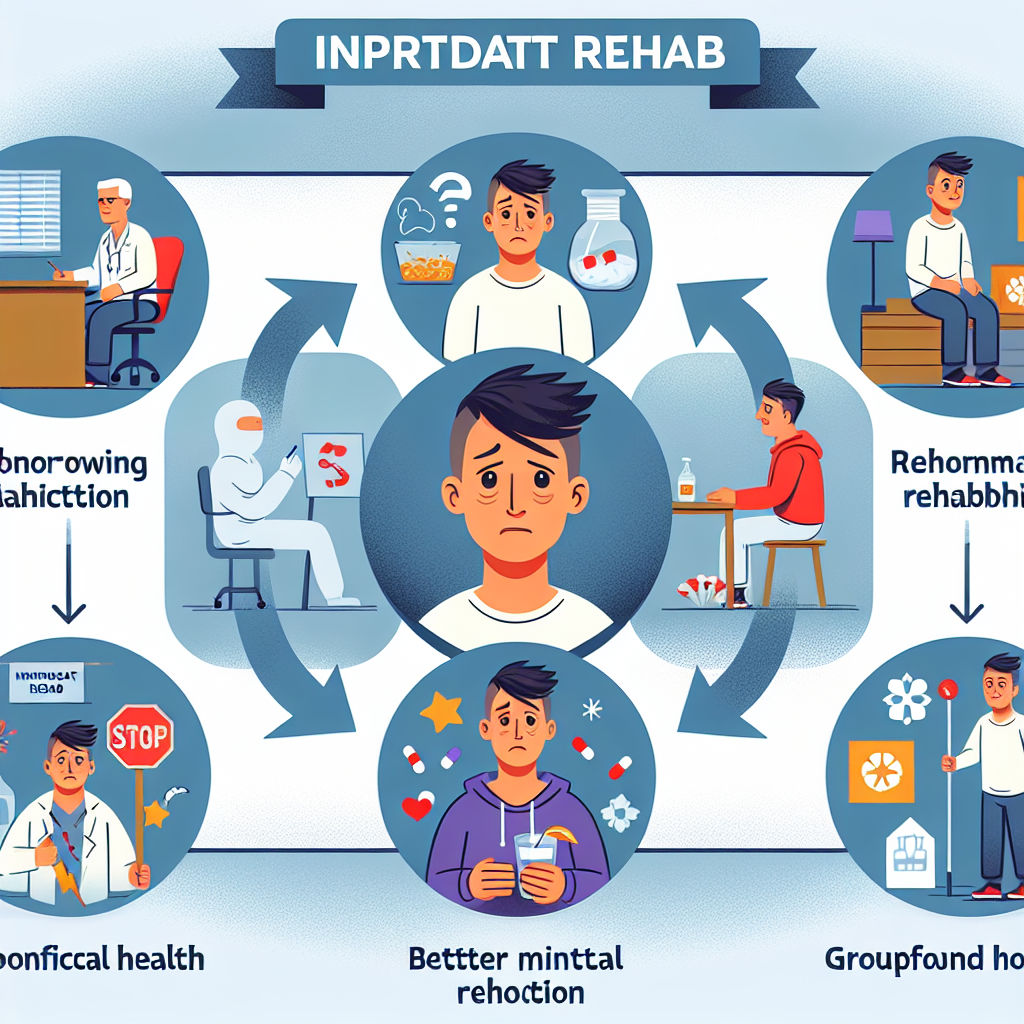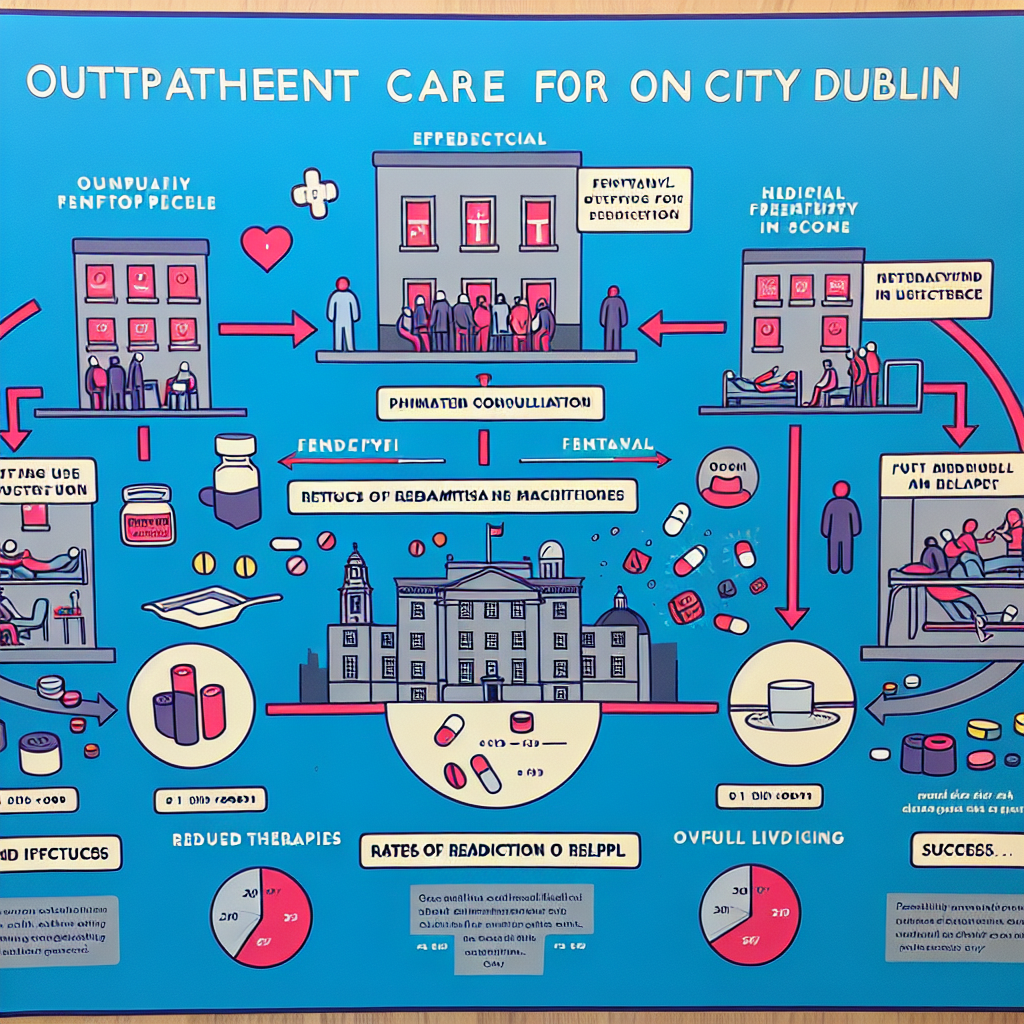-
Table of Contents

“Reclaim Your Life: Comprehensive Healing and Support in Inpatient Rehab for Fentanyl Addiction”
Introduction
Inpatient rehabilitation for fentanyl addiction offers a structured and supportive environment that is crucial for effective recovery. This type of treatment provides 24/7 medical supervision, which is essential for managing the severe withdrawal symptoms and potential health complications associated with fentanyl detoxification. Inpatient rehab also offers a comprehensive approach to treatment, including individual and group therapy, behavioral therapy, and holistic treatments, all designed to address the psychological and emotional aspects of addiction. The immersive nature of inpatient rehab minimizes external triggers and distractions, allowing individuals to focus entirely on their recovery. Additionally, the supportive community within inpatient facilities fosters a sense of camaraderie and shared experience, which can be incredibly motivating and reassuring for those in recovery. Overall, inpatient rehab provides a safe, controlled, and therapeutic environment that significantly enhances the chances of achieving long-term sobriety from fentanyl addiction.
Comprehensive Care: The Holistic Approach of Inpatient Rehab for Fentanyl Addiction
In the battle against fentanyl addiction, the journey to recovery can often seem daunting and insurmountable. However, the comprehensive care provided by inpatient rehab facilities offers a holistic approach that addresses not only the physical aspects of addiction but also the emotional, psychological, and social dimensions. This multifaceted strategy is crucial for individuals seeking to reclaim their lives from the grip of fentanyl dependency.
One of the primary benefits of inpatient rehab is the structured environment it provides. This setting is designed to eliminate the triggers and temptations that often lead to relapse. By removing individuals from their usual surroundings, inpatient rehab allows them to focus entirely on their recovery without the distractions and pressures of daily life. This immersive experience is essential for breaking the cycle of addiction and establishing new, healthier habits.
Moreover, inpatient rehab offers a comprehensive medical detoxification process. Fentanyl, being a potent opioid, can cause severe withdrawal symptoms that are not only uncomfortable but also potentially life-threatening. Inpatient facilities are equipped with medical professionals who can monitor patients around the clock, ensuring their safety and comfort during the detox phase. This medical supervision is vital for managing withdrawal symptoms effectively and reducing the risk of complications.
In addition to medical care, inpatient rehab provides a range of therapeutic interventions that address the psychological aspects of addiction. Cognitive-behavioral therapy (CBT), for instance, helps individuals identify and change negative thought patterns and behaviors associated with substance use. Group therapy sessions offer a supportive community where patients can share their experiences and learn from others who are facing similar challenges. These therapeutic approaches are instrumental in helping individuals understand the root causes of their addiction and develop coping strategies to prevent relapse.
Furthermore, inpatient rehab emphasizes the importance of holistic care, which includes addressing the emotional and spiritual well-being of patients. Many facilities offer complementary therapies such as yoga, meditation, and art therapy, which can help individuals reconnect with themselves and find inner peace. These activities promote mindfulness and self-awareness, which are crucial for long-term recovery. By nurturing the mind, body, and spirit, inpatient rehab fosters a sense of balance and harmony that supports sustained sobriety.
Another significant advantage of inpatient rehab is the aftercare planning and support it provides. Recovery does not end when a patient leaves the facility; it is an ongoing process that requires continuous effort and support. Inpatient rehab programs typically include comprehensive aftercare plans that outline the steps individuals should take to maintain their sobriety. This may involve outpatient therapy, support group meetings, and other resources that help individuals stay on track. The continuity of care ensures that patients have the tools and support they need to navigate the challenges of life after rehab.
In conclusion, the holistic approach of inpatient rehab for fentanyl addiction offers a comprehensive and effective pathway to recovery. By addressing the physical, psychological, emotional, and spiritual aspects of addiction, inpatient rehab provides individuals with the support and resources they need to overcome their dependency and build a healthier, more fulfilling life. The journey to recovery may be challenging, but with the comprehensive care provided by inpatient rehab, individuals can find hope, healing, and a renewed sense of purpose.
Structured Environment: How Inpatient Rehab Enhances Recovery from Fentanyl Addiction
Inpatient rehab offers a structured environment that significantly enhances recovery from fentanyl addiction, providing a sanctuary where individuals can focus solely on their healing journey. The structured setting of inpatient rehab is designed to eliminate distractions and triggers, creating a safe space where patients can engage fully in their recovery process. This environment is crucial for those battling fentanyl addiction, as the drug’s potent nature often requires intensive and continuous care.
One of the primary benefits of inpatient rehab is the constant supervision and support available to patients. This 24/7 care ensures that individuals have immediate access to medical and psychological assistance, which is particularly important during the initial detoxification phase. Fentanyl withdrawal can be severe and, in some cases, life-threatening. Having medical professionals on hand to manage symptoms and provide comfort can make a significant difference in the patient’s ability to endure this challenging period.
Moreover, the structured environment of inpatient rehab includes a well-organized daily schedule that incorporates various therapeutic activities. These activities are designed to address the physical, emotional, and psychological aspects of addiction. For instance, patients participate in individual therapy sessions where they can explore the underlying causes of their addiction and develop coping strategies. Group therapy sessions offer a sense of community and shared experience, which can be incredibly empowering and reduce feelings of isolation.
In addition to therapy, inpatient rehab programs often include educational workshops that inform patients about addiction and recovery. Understanding the science behind addiction can demystify the process and empower individuals to take control of their recovery. These workshops also teach practical skills, such as stress management and relapse prevention techniques, which are essential for maintaining long-term sobriety.
Another significant advantage of inpatient rehab is the opportunity for patients to build a supportive network. The relationships formed with fellow patients and staff members can provide a strong foundation for recovery. These connections often extend beyond the duration of the rehab program, offering ongoing support and encouragement. The sense of camaraderie and mutual understanding within the rehab community can be a powerful motivator, helping individuals stay committed to their recovery goals.
Furthermore, the structured environment of inpatient rehab minimizes exposure to external triggers and negative influences. This separation from the outside world allows patients to break free from the environments and relationships that may have contributed to their addiction. By removing these distractions, individuals can concentrate on developing healthier habits and thought patterns. This period of focused self-improvement is crucial for building the resilience needed to face the challenges of life after rehab.
Inpatient rehab also provides a holistic approach to recovery, addressing not just the addiction but the overall well-being of the individual. Many programs incorporate physical activities, such as yoga and exercise, which promote physical health and mental clarity. Nutritional counseling ensures that patients receive balanced meals that support their recovery. These holistic practices contribute to a sense of overall wellness, which is essential for sustaining long-term recovery.
In conclusion, the structured environment of inpatient rehab offers numerous benefits for individuals recovering from fentanyl addiction. The constant support, organized therapeutic activities, educational workshops, and the opportunity to build a supportive network all contribute to a comprehensive recovery experience. By providing a safe and focused setting, inpatient rehab empowers individuals to overcome their addiction and build a healthier, more fulfilling life.
Q&A
1. **Question:** What are the medical benefits of inpatient rehab for fentanyl addiction?
**Answer:** Inpatient rehab provides 24/7 medical supervision, which is crucial for managing withdrawal symptoms and preventing potential complications associated with fentanyl detoxification.
2. **Question:** How does inpatient rehab support psychological recovery from fentanyl addiction?
**Answer:** Inpatient rehab offers structured therapy sessions, including individual and group counseling, which help address the psychological aspects of addiction and develop coping strategies for long-term recovery.
Conclusion
Inpatient rehab for fentanyl addiction offers numerous benefits, including a structured and supportive environment, 24/7 medical supervision, and access to comprehensive therapeutic services. This setting helps individuals safely detox from fentanyl, manage withdrawal symptoms, and address underlying psychological issues. The immersive nature of inpatient rehab fosters a focused recovery process, reduces the risk of relapse, and provides patients with the tools and coping strategies necessary for long-term sobriety. Overall, inpatient rehab significantly enhances the chances of successful recovery from fentanyl addiction.



